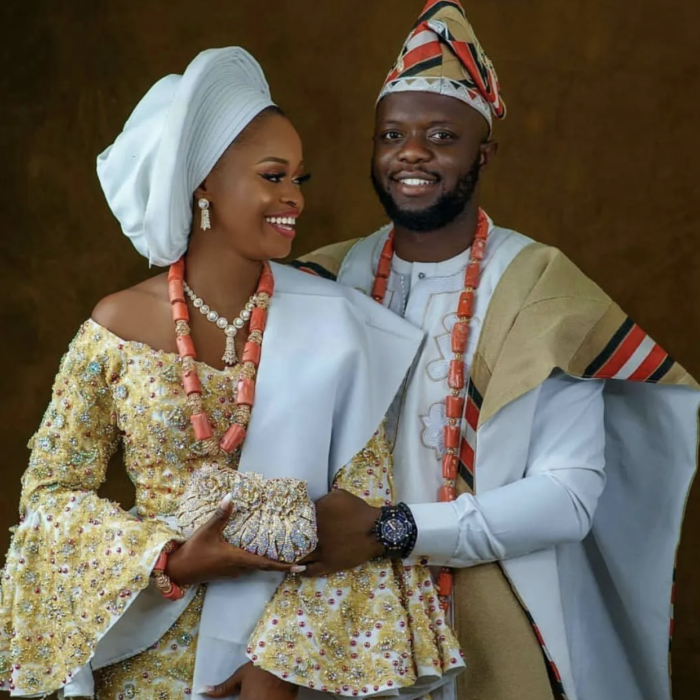By The Editorial Board
In this editorial, we critically analyze certain unjustified beliefs commonly held within the Igbo community in Nigeria. These beliefs, often rooted in a sense of ethnic pride, include perceptions of being the most educated, intelligent, hardworking, innovative, entrepreneurial, and prosperous group in the country.
While these attributes are commendable, the notion of Igbos being inherently superior in these aspects to other Nigerian ethnicities is a matter of subjective interpretation rather than objective fact. Consider including this list of misconceptions in your New Year’s resolution to reassess and update your beliefs.
This editorial does not aim to diminish the significant contributions of the Igbo community to Nigeria’s socio-economic fabric. Instead, it seeks to encourage a more nuanced understanding of their role and impact, moving beyond generalizations to a more evidence-based perspective. This approach allows for a more inclusive and accurate representation of the diverse ethnic landscape in Nigeria.
We understand that such discussions can evoke strong responses. Therefore, we urge readers to approach this topic with open-mindedness and respect for diverse viewpoints. In the spirit of balanced discourse, future editorials will also explore common misconceptions held by other Nigerian ethnic groups, such as the Yoruba and the Hausa/Fulani.
This editorial critically examines ten specific beliefs often attributed to the Igbo community, offering alternative perspectives and encouraging a re-evaluation of these commonly held views. Our goal is to foster a deeper understanding of the complexities and realities of ethnic identities in Nigeria, and to promote a dialogue that is constructive, respectful, and enriching for all involved.
#1: “We can feed ourselves”
Contrary to the prevalent belief among some in the Igbo community that they are self-sufficient in food production, evidence suggests a significant reliance on external sources. Igbo households depend on outside sources for key staples such as rice, maize, cassava, yams, potatoes, onions, tomatoes, vegetables, fish, and meat. This reliance is necessary to meet their daily caloric and protein requirements, indicating that their local agricultural output is insufficient for self-sustenance.
Research indicates that the production levels of essential crops like cassava and yam are not only low in the Southeast but also that the yields of these crops are on a decline. This situation has led to the Northern regions of Nigeria – encompassing the Northeast, Northwest, and Northcentral – emerging as the primary food suppliers not just for the Southeast but for the entire country. This reality underscores a gap between the perception of self-sufficiency and the actual agricultural capacity within the Igbo community.
#2: “We are the smartest”
The assertion that the Igbos are the smartest ethnic group in Nigeria raises questions about the criteria used to define intelligence. Intelligence is a complex and multifaceted attribute that extends beyond academic performance or intellectual achievements. It includes emotional intelligence, social skills, practical problem-solving abilities, and creativity, among others.
While the Igbo community has undoubtedly produced many individuals who have excelled academically and professionally, it is not indicative of an inherent superiority in intelligence across the entire ethnic group. The use of academic metrics like JAMB scores to gauge intelligence is not a reliable indicator, as these scores do not necessarily predict future academic success at the university level. Performance in exams like JAMB or the SS3 exit exams is influenced by various factors, including the quality of education (be it private or public), environmental influences, and personal or family circumstances.
Furthermore, when considering the Igbo community in an international context, such as in the United States, it becomes evident that their achievements are comparable to those of other Nigerian ethnic groups. For instance, members of the Yoruba ethnic group hold a significant number of high-ranking positions in both the government and private sector in the USA, on par with their Igbo counterparts. This observation challenges the notion of a singular ethnic group possessing superior intelligence and underscores the diversity of talents and capabilities across different Nigerian communities.
#3: “We are the most entrepreneurial group in Nigeria”
The claim that Igbos are the most entrepreneurial group in Nigeria needs a nuanced understanding. Entrepreneurship, a trait evident in many Igbos, is diverse and not confined to one ethnic group. This claim does not fully acknowledge the entrepreneurial spirit and achievements of other Nigerian ethnicities. Entrepreneurship varies in type and scale, each contributing differently to economic development and wealth creation. Among Igbos, the majority of entrepreneurs are involved in small business, hustler, or buyer entrepreneurship, with fewer participating in larger-scale, innovative, or scalable startup entrepreneurship. While Igbos do have a significant presence in certain entrepreneurial categories, it’s important to recognize that entrepreneurship is a common attribute across Nigeria, with various ethnic groups contributing significantly to the national economy through their entrepreneurial efforts.
#4: “We have the best educational system in Nigeria“
The assertion that the Igbo community has the best educational system in Nigeria is an overgeneralization. Educational quality varies considerably throughout Nigeria and is not exclusive to any particular ethnic group or region. Some Igbo states like Imo, Abia and Anambra may indeed have high educational standards, but this is not a consistent trait across all Igbo-dominated regions. Moreover, other Nigerian regions also have educational institutions and systems of high quality. For instance, a look at the rankings by The Times Higher Education World University Ranking of Nigerian Universities shows that only one university from the Igbo region, the University of Nigeria, Nsukka (UNN), is in the top 10, with only two in the top 15 (UNN and Nnamdi Azikiwe University, Awka). This illustrates that high-quality university system education is not a monopoly of any single ethnic group in Nigeria.
#5: “We are the Jews of Africa“
The phrase “Igbos are the Jews of Africa” is a metaphorical expression, reflecting a sense of shared experiences in persecution and resilience, rather than a literal comparison of ethnic or religious identities. Igbos are no Jews. Genetically, Igbos are distinct from Jewish people. It is important to distinguish metaphorical expressions from actual ethnic or religious identities, as such comparisons are symbolic rather than based on factual similarities.
#6: “We are exceptional“
The notion of Igbo exceptionalism can lead to ethnic chauvinism, potentially causing division and overshadowing the contributions of other groups. While the Igbo community possesses unique qualities and achievements, this is also true for other ethnic groups in Nigeria. Acknowledging and respecting the diversity and strengths of all communities is essential for unity and progress.
#7: “We’ll be better-off being apart from Nigeria“
The idea that Igbos would be better off separate from Nigeria overlooks the complexities and potential downsides of secession. Being part of Nigeria offers significant economic, political, and social advantages. For example, a large proportion of Igbo commercial and industrial activities are based in non-Igbo states, where the markets are more vibrant and profitable. Despite legitimate grievances, constructive engagement within Nigeria’s national framework is often the more beneficial path. Many Igbo business leaders recognize the value of this approach.
#8: “Without us Lagos and Abuja will fail“
Economists often highlight the significant interdependence between the Igbo community and major cities like Lagos and Abuja. Contrary to the belief that these cities would struggle without the Igbo population, it is actually a mutual dependency. The economic prosperity of many Igbos is closely tied to these urban centers. Lagos and Abuja, along with other major commercial cities such as Kaduna, Kano, Uyo and Port Harcourt, serve as critical markets and hubs for Igbo businesses. These cities’ cosmopolitan nature and vibrant markets are essential for the thriving and profitability of Igbo enterprises. This interdependent relationship underscores the importance of national unity and the economic interconnectedness of different ethnic groups within Nigeria.
#9: “We are united across all Igbo-speaking states“
The perception of complete unity among all Igbo-speaking states simplifies the complex social and political dynamics within the Igbo ethnic group. Like any large community, there are diverse opinions, political views, and social norms among the Igbos, reflecting the varied experiences and perspectives within the group. Even within the Igbo-speaking community, there are distinct variations among sub-groups, such as those from Owerri and Umuahia, and others from Awka and Abakaliki. These sub-ethnicities often have differences in their linguistic nuances, political cultures, and social norms. Similarly, Igbo-speaking people in Rivers and Delta states also exhibit unique characteristics that set them apart from other Igbo groups. This diversity highlights the complex and multifaceted nature of the Igbo ethnic identity, demonstrating that it cannot be viewed as a homogenous entity.
#10: “We are superior to all others in Nigeria“
Claims of Igbo superiority over other ethnic groups in Nigeria are unfounded and divisive. Such assertions conflict with the principles of equality and mutual respect. Nigeria’s strength lies in its diverse population and the contributions of all its ethnic groups, each bringing unique qualities to the nation’s collective identity.
In conclusion, the examination of these various beliefs and perceptions within the Igbo community illuminates the intricate construction of human identity and the dangers of oversimplification. It reveals the profound impact of historical, cultural, and socio-economic factors in shaping group narratives and individual perceptions. This discourse serves as a powerful reminder of the importance of approaching ethnic identities with nuance and sensitivity. It underscores the need for a collective effort towards understanding and appreciating the diversity within and beyond all our ethnic lines. In doing so, we foster a more inclusive, empathetic, and united society, where the strengths and contributions of every group are recognized and celebrated, paving the way for a harmonious coexistence and a richer national identity. United in our diversity is one nation, Nigeria.




